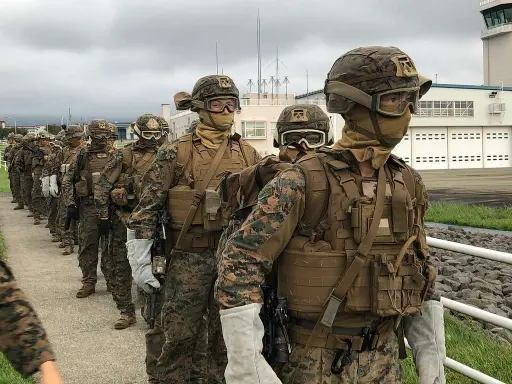America is suffering from a major drug crisis. There are over 100,000 overdose deaths annually in the U.S., cartel-related violence in nearby Mexico, and widespread cartel infiltration in American communities.
U.S. President Donald Trump’s plan to fight the cartels by designating them as Foreign Terrorist Organizations (FTOs) opens an entirely new playbook for the United States.
The rationale for this designation is simple: Mexican cartels meet the legal and operational definitions of terrorist organizations due to their use of extreme violence, targeting of civilians, and threats to national security.
The point of this designation, therefore, is to strengthen law enforcement and military response, disrupt cartel operations, and save American and Mexican lives.
Today, cartels maintain thousands of heavily armed fighters, armored vehicles, drones, and sophisticated intelligence networks. They easily outgun and outmaneuver Mexican security forces in direct combat.
The cartels are notorious for extreme violence and targeting civilians, carrying out horrifying beheadings, mass executions, torture, and public displays of violence akin to ISIS and al-Qaeda.
The cartels have long terrorized Mexican communities through kidnappings, forced disappearances, and assassinations.
Tren de Aragua and MS-13 were specifically cited in Trump’s day-one executive order. The label also applies to six cartels based in Mexico: Sinaloa, Jalisco New Generation, Gulf, Northeast, La Nueva Familia Michoacana, and United.
On the state level, cartels systematically corrupt and infiltrate government institutions, from local police to federal agencies. They control entire regions of Mexico, creating “narco-states” within a sovereign nation.
Some critics argue that designating the cartels as terrorist groups would be a mistake. The authors of a recent Foreign Policy article argue that “Many are already designated as transnational criminal organizations, or TCOs, and/or through the Foreign Narcotics Kingpin Designation Act. An FTO designation would not significantly increase policy leverage beyond what these offer. More troubling, an FTO designation would harm U.S. businesses and relations with countries such as Mexico, pose a significant risk of government overreach, and offer little payoff in return.”
But it is plain to see that cartels pose a direct threat to U.S. national security, and it is necessary to designate them as FTOs. The current fentanyl epidemic that has swept across America has caused over 70,000 annual deaths (the additional 30,000 deaths are caused by other drugs), with much of the drug supplied by cartels with precursor chemicals from China. The cartels traffic fentanyl, methamphetamine, heroin, cocaine, and other drugs to the United States in vast quantities. This level of devastation has resulted in a biological weapon-like impact on American communities, disproportionately affecting youth.
The border security crisis is directly connected to the fentanyl crisis and national security. Cartels control human smuggling networks, facilitating illegal immigration, including trafficking of minors. The open borders America has seen over the last four years resulted in potential terrorist infiltrations via cartel-controlled routes.
With open borders and minimal policing and enforcement, cartels have been able to operate in all 50 states, running drug distribution, money laundering, and violent enforcement operations. This presence has resulted in increased cartel-related homicides in major U.S. cities.
Designating the cartels as terrorists allows the U.S. to take enhanced steps to prevent their activities and expands U.S. law enforcement powers.
The FTO designation enables prosecution of individuals and entities providing financial, logistical, or technological support to cartels. It also disrupts banking and financial networks used by cartels in the U.S. and internationally.
The designation strengthens coordination between DEA, FBI, DHS, CIA, and DOD to dismantle cartel networks, and enables cooperation with international intelligence agencies under counterterrorism frameworks.
By designating the cartels as FTOs, the U.S. now expands the Treasury Department’s ability to seize cartel assets and sanction their business fronts. It also cripples cartel money laundering operations via foreign banks and shell companies.
The FTO designation also serves as justification for military action against the cartels. It allows targeted military strikes, drone operations, and special forces missions against high-value cartel targets. It also creates the potential for cross-border operations in cooperation with Mexico.
This change in approach to dealing with the cartels is almost certainly likely to see an expansion of joint U.S.-Mexico security cooperation. Now, Mexico can request U.S. assistance under anti-terror frameworks without violating sovereignty.
The move also strengthens security forces in Mexico, providing direct military aid to combat cartels.
Of course, there are legitimate concerns, and the U.S. will need to manage diplomatic fallout as it could be perceived to be violating or at least compromising Mexican sovereignty.
The Trump administration will need to engage closely with Mexico’s leadership to frame cartels as a common enemy.
The White House can achieve this by offering intelligence-sharing, security aid, and economic incentives to secure Mexico’s support. It remains important for the Trump administration to highlight U.S. respect for Mexico’s sovereignty while asserting America’s right to defend its citizens.
Naturally, any military or diplomatic steps against the cartels risks retaliation on their part and both the U.S. and Mexico will need to proceed with caution.
The U.S. will need to increase domestic security to prevent reprisal attacks, mainly by bolstering border security to counter infiltration efforts by the cartels.
By cracking down on the cartels and designating them as FTOs, the U.S. will directly save lives and secure a better future for its citizens.
The move will also result in an immediate reduction in cartel violence, fentanyl trafficking, and illegal smuggling.
The long-term results will see weakened cartels, restored rule of law in Mexico, and a safer United States.
The FTO designation, combined with a coordinated law enforcement and military response, is the correct answer to America’s drug crisis.
It will save thousands of American lives.
